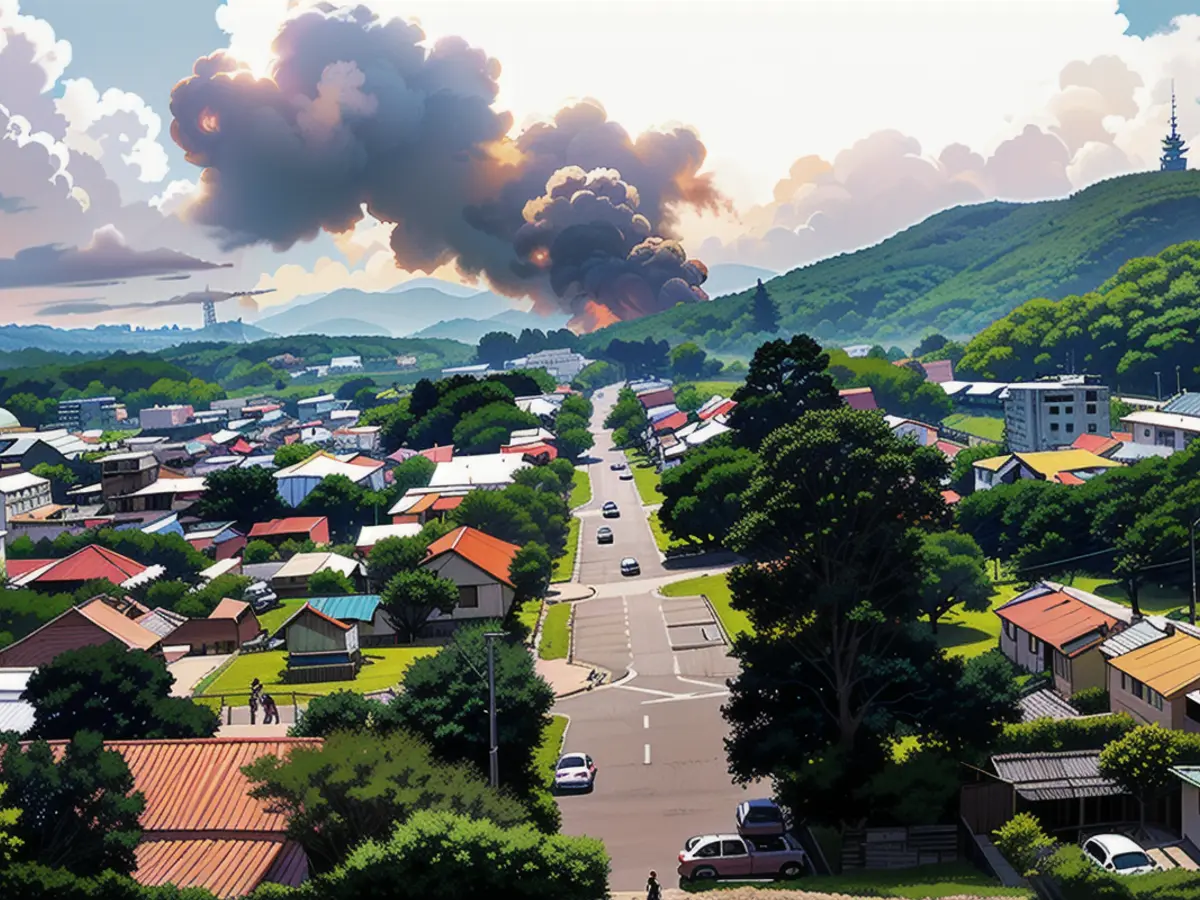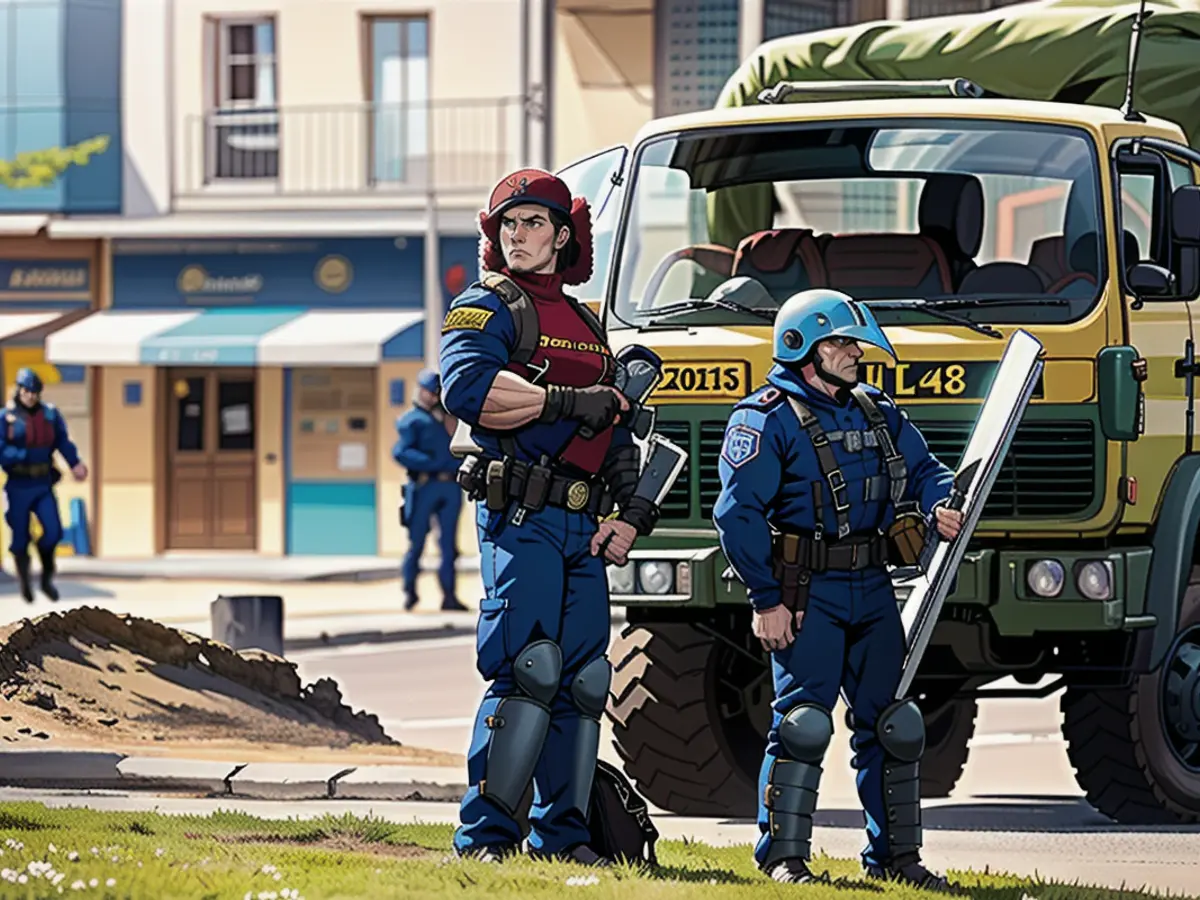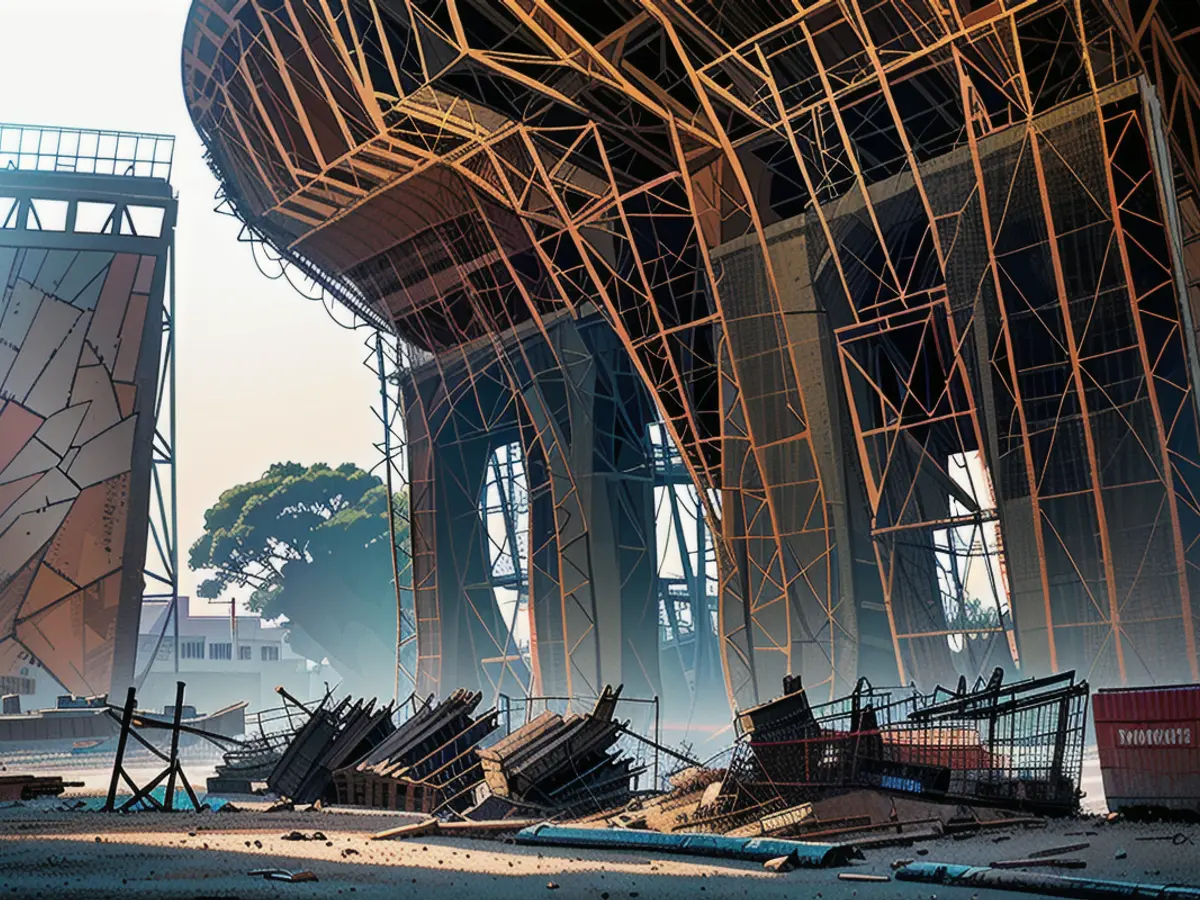What is causing unrest on a French island in the Pacific due to a vote taking place 10,000 miles away?
A person has been killed during the recent unrest, which is the worst since the 1980s, in the capital of Noumea. This has led to the authorities imposing a curfew, banning public gatherings, carrying weapons, selling alcohol, and closing the main airport to commercial traffic. The violence is a result of long-standing political tensions between the island's pro-independence indigenous Kanak communities and French inhabitants who don't want to break ties with France.
The French military has sent "four additional squadrons" to restore order, according to French Interior Minister Gerald Darmanin.
New Caledonia is a semi-autonomous French territory in the South Pacific, surrounded by Australia, Fiji, and Vanuatu. Protests started on Monday over a vote in the French parliament that proposes changes to the territory's constitution, giving greater voting rights to French residents on the island.
This could add thousands of new voters, as the electoral rolls haven't been updated since the late 1990s. Pro-independence groups see this as an attempt by France to solidify control over the archipelago.
French President Emmanuel Macron has urged political leaders in New Caledonia to "unambiguously condemn all this violence" and has invited both pro- and anti-independence leaders to meet him in Paris. He is also chairing a defense and national security council meeting to discuss the violence.
The unrest is part of a larger strategy by Macron to make France a power in the Indo-Pacific, as China and the U.S. vie for influence in the strategically important region. New Caledonia is central to this plan.
The violence
A person was shot dead as pro-independence protesters exchanged gunfire with security personnel and local militias formed to protect homes and businesses. Many buildings and cars were set on fire in Noumea, despite a curfew. Thick smoke covered the capital and images showed burned-out cars, fires on the streets, and looted shops.
There were at least 130 arrests and 60 security personnel injured in the clashes between nationalist groups and the French authorities, according to French High Commissioner to New Caledonia Louis Le Franc.
Some protesters had hunting rifles with buckshot ammunition, while others had larger rifles. Le Franc also mentioned that there were locals with weapons that were not specified.

A resident told Radio New Zealand about panic buying and wanting the government to take action to maintain peace: “A lot of fire, violence...but it's better I stay safe at home. There are a lot of police and army. I want the government to put the action for the peace.”
The vote
New Caledonia has a history of violence, with deadly clashes in the 1980s that eventually led to the Noumea Accord in 1998. This agreement promised greater political autonomy for the Kanak community.
However, democratic referendums with the option to secede from France have been held since then, and each referendum was rejected due to boycotts from pro-independence groups and Covid-19.
The frozen voter roles are at the heart of the issue that prompted the vote that sparked this week's violence. The French parliament voted to change the constitution to "unfreeze" the territory's electoral rolls, enfranchising French residents who have lived in New Caledonia for 10 years.
Both houses of the French parliament need to approve the change, which passed the National Assembly.
The French Prime Minister said the government wouldn't call a meeting of the parliament to vote on the motion before talks with Kanak leaders, including the major independence alliance the FLNKS.
"I invite New Caledonia's political leaders to seize this opportunity and come to Paris for talks in the coming weeks," he said. "The important thing is conciliation. Dialogue is important. It is about finding a common, political and global solution."
The FLNKS released a statement on Wednesday in response to the voting at the National Assembly, expressing their opposition and urging the end of violence. The statement pleads with the young protesters to maintain peace and protect both people's safety and property.

Read also:
- This will change in December
- Dikes withstand water masses so far - Scholz holds out the prospect of help
- Fireworks and parties ring in 2024 - turn of the year overshadowed by conflicts
- Attacks on ships in the Red Sea: shipping companies avoid important trade route
The unrest in New Caledonia is causing concern across the world, as the situation in this French territory in the South Pacific has the potential to affect regional stability. France, being a major player in the Indo-Pacific region, recognizes the importance of maintaining peace in New Caledonia, given its strategic location and its relations with other Asian nations.
Source: edition.cnn.com







